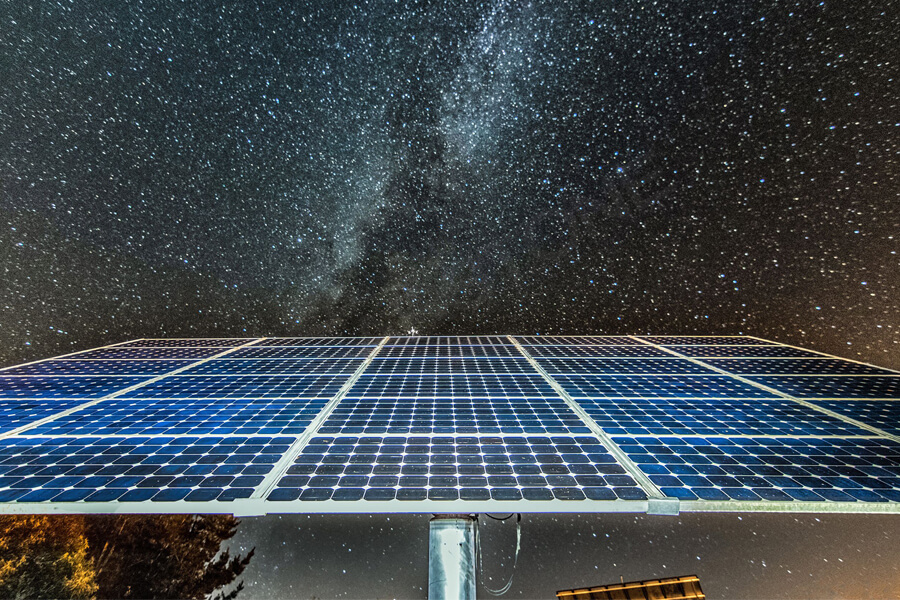Solar panels can still generate electricity on cloudy and rainy days, although their efficiency will be significantly reduced compared to sunny days.
- Cloudy Days: Solar panels can still capture some sunlight on cloudy days, albeit less than on sunny days. Modern solar panels are designed to work under diffused sunlight, which means they can generate electricity even when the sun’s rays are scattered by cloud cover. However, the electricity output will be lower.
- Rainy Days: During rainy days, solar panels are less effective because raindrops scatter and block sunlight. Again, they can still generate some electricity, but it will be considerably less than on sunny or even cloudy days.
- Nighttime: Solar panels do not produce electricity at night since there is no sunlight available. However, energy storage solutions like batteries can store excess energy generated during sunny days for use at night or during cloudy/rainy periods.
While solar panels are less efficient during cloudy and rainy days, they can still contribute to your electricity needs. In regions with frequent cloud cover or rain, it’s important to design your solar power system with this in mind and potentially incorporate energy storage solutions to ensure a more consistent power supply.
Additionally, advancements in solar technology and the use of tracking systems that follow the sun can help improve solar panel efficiency, even on cloudy days, by optimizing their angle and position relative to the sun.


